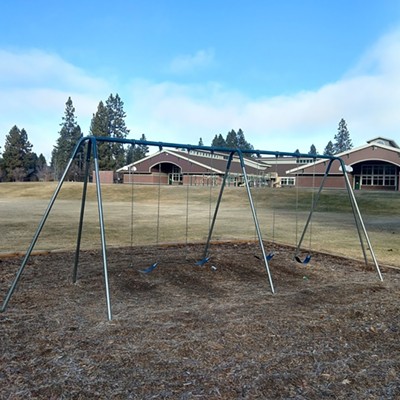In Bend, the mayor is not the boss of the City. He has no more authority than his fellow city councilors and, in many ways, it is the city manager who steers the ship (and receives pay commensurate with that weighty task). And yet, the mayor serves as a figurehead, a symbol of authority, and representative of the City.
Deschutes County Commissioner Tammy Baney, whose fulltime job it is to help craft policy for the most populous county east of the Cascades, recalls being approached by her child's teacher to ask an "awkward question." The class was learning about government and, thinking the teacher was about to invite her to speak, Baney accepted the offer before it was ever made.
"Actually, I was wondering if you know the mayor," the teacher responded.
Despite this important symbolic, if not political, role, Bend's mayor is not elected by voters, but appointed by Council. And, as Bend grows, some are questioning whether this model is outdated. Ironically, leading that charge is Bend's two-term mayor, Jim Clinton.
"The charter is due for revisions," Clinton said in an interview with the Source in November. "Having Council choose a mayor and pro tem is an archaic system and does not serve a city this size and has not for a long time."
Only 16 cities in Oregon still appoint their mayors from council; and, among those, Bend is the largest. In Deschutes County, only Sisters also follows this model. Oregon cities in which voters do not elect their mayor are generally small, ranging in size from Baker City (population 9,828) to Unity (population 71).
Changing the way the mayor is elected would require a revision of the City's charter, which would need to be approved by voters at the ballot. Clinton recently told the Source he plans to bring the question to Council in the coming months. If a majority of councilors want to move forward, they would likely convene a charter review commission to look into the mayor question, as well as other issues such as councilor pay and, perhaps, residency requirements.
"Another route is for a citizen group to promote a ballot measure through petition and signature gathering," Clinton explained. "I have heard various discussions along these lines, but none are firm plans as far as I know."
At the moment, none of his fellow councilors is taking up the vanguard. Most told the Source they are undecided. Councilor Victor Chudowsky is the most strongly opposed, arguing that there's no need to change a system that isn't broken.
"Right now it seems to be a solution in search of a problem. In other words, what is the problem the elected mayor is supposed to address, what can it solve?" Chudowsky said. "I'm not into having an elected mayor for the sake of having an elected mayor."
But, according to Clinton, the problem is multifaceted. Because the City Council serves in both a legislative and executive capacity, he explained, it lacks checks and balances.
"It's like having a state without a governor, a federal system without a president," Clinton said. "The stakes are really pretty high here too."
In addition to addressing this imbalance, he said an elected mayor would give Bend more solid footing in Salem and create continuity, stability, and accountability.
In Redmond—where the mayor is elected by voters to a two-year term—Mayor George Endicott agrees.
"I think a mayor should be directly elected for a few reasons," Endicott, who's entering his sixth year as mayor, told the Source. "I do think it gives the mayor more stature. They're no longer just a councilor filling a role; they're actually elected by the people to be the mayor. I believe it makes a difference over at the state legislature.... I've often argued Bend should be a loud voice for Central Oregon even outside Central Oregon."
He added that an elected mayor is more likely to direct his or her candidacy at the people, rather than at other councilors. This means that, if voters are dissatisfied with Council, they could send a strong message with their vote. With the current model, Endicott said, it seems unlikely that Council would ever appoint a newer member to be mayor.
Some councilors and community members have expressed concern that changing the method of election would mean re-evaluating the mayor's roles and responsibilities. And it might. But it doesn't have to. Endicott's mayoral charge in Redmond is nearly identical to Clinton's in Bend. Both facilitate meetings, appoint committee members, and represent their city to visitors and other leaders. The only real difference? Redmond's mayor receives a $300 a month stipend, as opposed to Clinton's $200.
Ultimately, Bend City Council—or the public at large—will have to decide if making the change is worth the trouble. The last time the question was raised, the charter review commission advised against making any changes. And, Clinton said, he was just one vote shy on Council.
Chuck Arnold, director of the Downtown Bend Business Association, was on that commission, which included a number of former councilors and mayors.
"In the years passed, my feeling is if enough people keep bringing up that they're concerned...then in a way, maybe [the system] is broken," Arnold said. "I think being able to engage people in a democratic process is worth considering."
Do you think the voters should have a say in the election of Bend's mayor? Take our poll below.



![My View: Emerson Levy, Oregon House District 53 Democratic candidate ▶ [with video]](https://media1.bendsource.com/bend/imager/my-view-emerson-levy-oregon-house-district-53-democratic-candidate-with-video/u/r-bigsquare/13468288/screen_shot_2020-10-19_at_4.01.19_pm.png?cb=1680199408)

![My View: Anthony Broadman, Bend City Council Pos. 2 candidate ▶ [with video]](https://media1.bendsource.com/bend/imager/my-view-anthony-broadman-bend-city-council-pos-2-candidate-with-video/u/r-bigsquare/13400361/screen_shot_2020-10-07_at_5.12.35_pm.png?cb=1680199414)





















